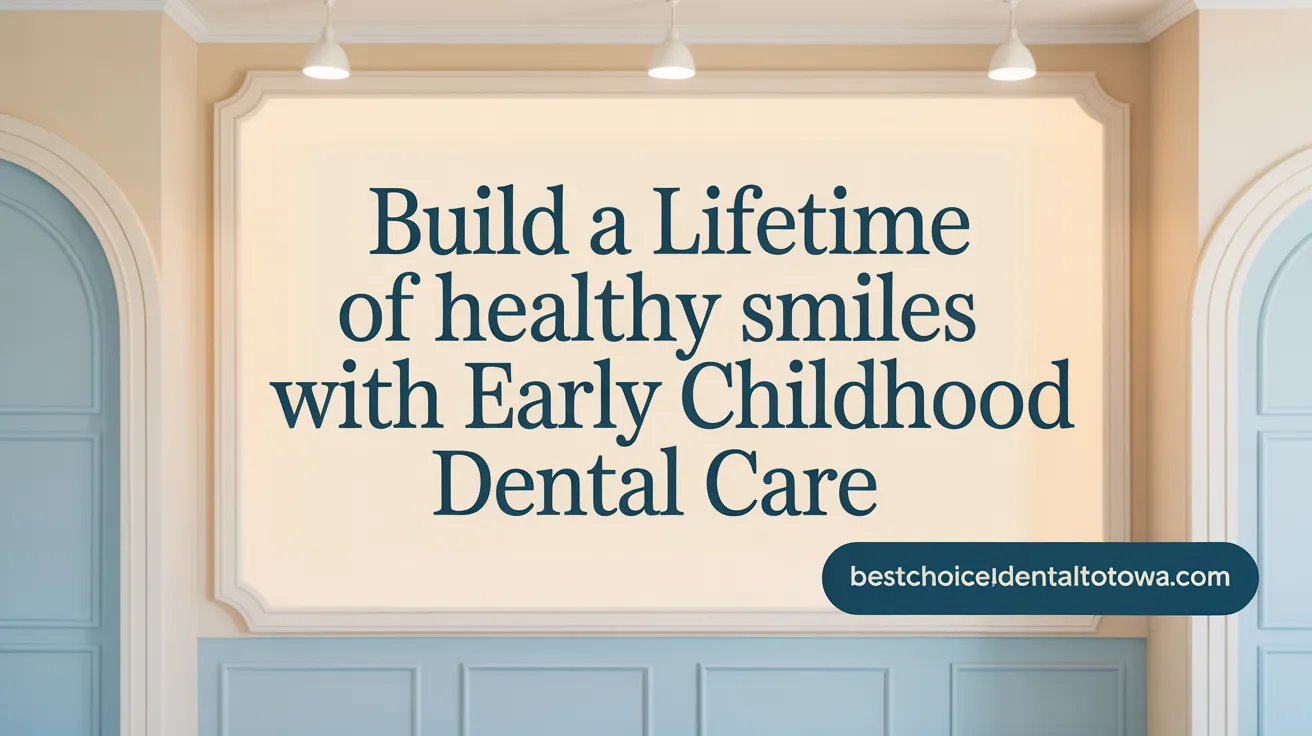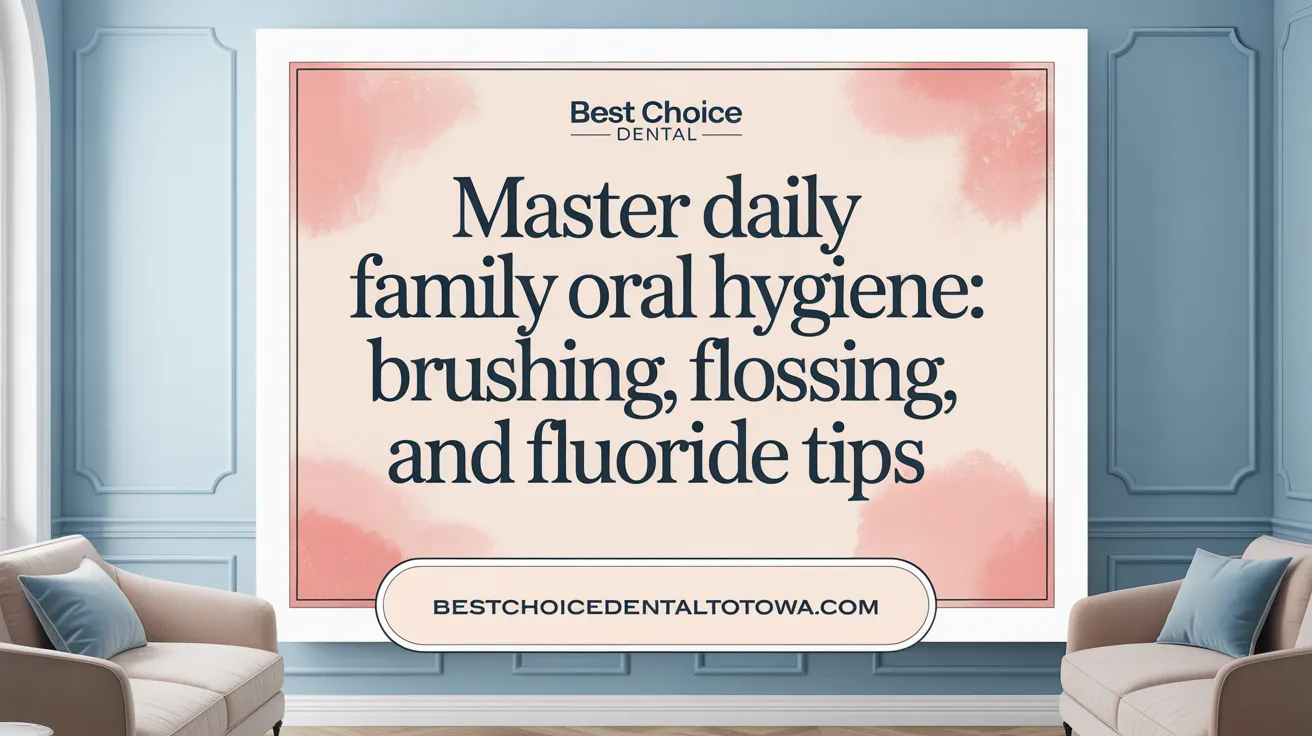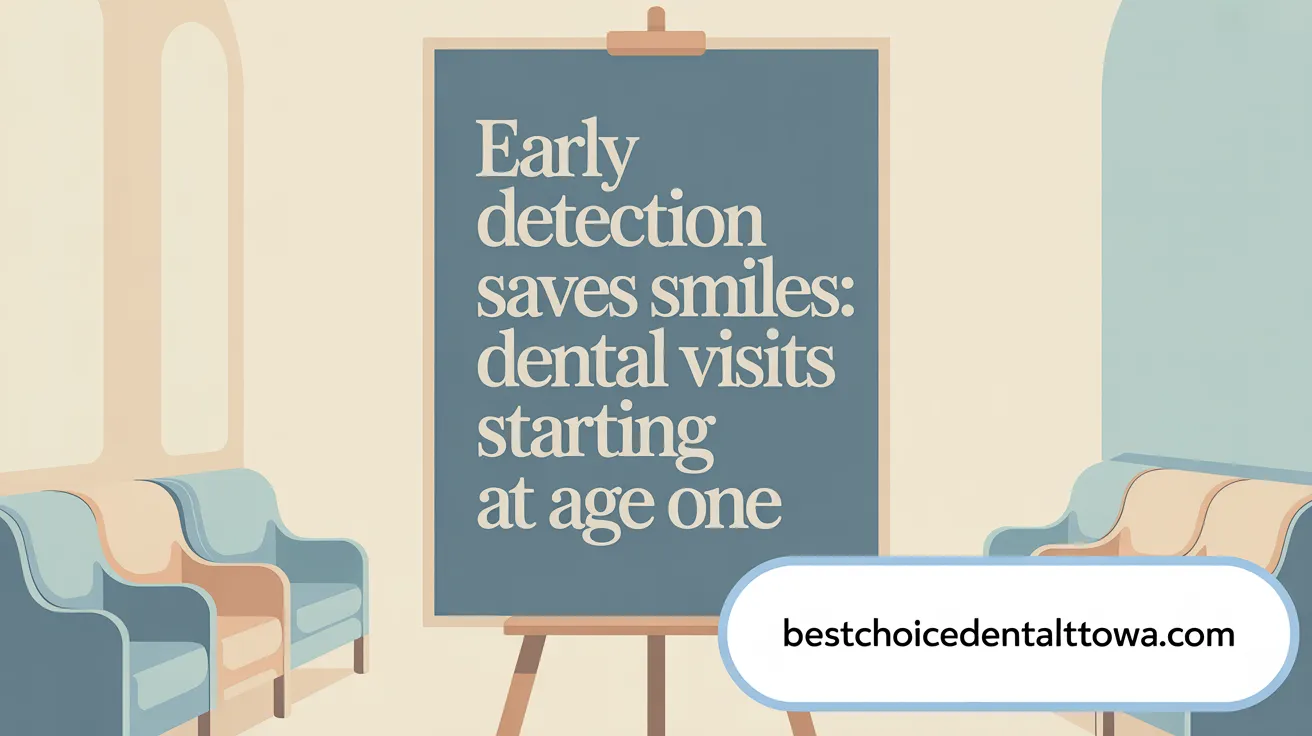The Cornerstone of Family Dental Wellness
Maintaining healthy teeth and gums is critical for every family member, from infants to seniors. Good oral health contributes not only to a bright smile but also plays a crucial role in overall health, influencing everything from nutrition to chronic disease risk. This article explores comprehensive dental care tips tailored for families to ensure healthy teeth throughout life, emphasizing preventive routines, professional care, and lifestyle choices.
Building Strong Foundations: Early Childhood Oral Care

Why Are Baby Teeth Important?
Baby teeth play a crucial role beyond just aesthetics. They assist with speech development, enable proper chewing, and serve as placeholders ensuring that adult teeth grow in aligned properly. Neglecting baby teeth can lead to misalignment and complications later in life. Learn more about the importance of baby teeth and early dental visits.
When Should Children Visit the Dentist?
A child's first dental visit should occur by age one or within six months of their first tooth’s appearance. Early visits help establish a dental home and allow dentists to monitor development and address potential issues swiftly. See guidance on early dental visits by age 1 and regular check-ups.
How Should Parents Care for Infant and Child Teeth?
Start oral care before teeth emerge by gently wiping gums with a damp cloth after feedings. Once teeth appear, use a soft-bristled toothbrush and clean teeth twice daily with an age-appropriate amount of fluoride toothpaste: a smear for under 3 years and a pea-sized amount up to 6 years. Parents should supervise brushing and begin flossing when teeth start touching to remove plaque where toothbrushes can't reach. Using electric toothbrushes or floss holders can help children develop effective hygiene habits. For more on proper brushing and flossing techniques for children and using fluoride toothpaste, see these resources.
What Roles Do Fluoride and Sealants Play?
Fluoride, through toothpaste or varnish, strengthens enamel and protects against decay. Dental sealants applied to back teeth create a protective barrier, preventing cavities especially in high-risk children. Details on fluoride use and dental sealants for children provide more insights.
How Do Diet and Habits Influence Oral Health?
Limiting sugary and acidic foods and drinks reduces the risk of cavities. Encouraging nutritious snacks like fruits, vegetables, cheese, and water supports healthy teeth. Avoid prolonged bottle use with sugary liquids and help children break habits such as thumb-sucking by age 3-4 to prevent dental misalignment. Learn about diet and dental health impacts and managing oral habits in children.
Together, these early interventions build a strong foundation for lifelong oral health.
Daily Habits for Effective Oral Hygiene in the Family

How should family members brush their teeth effectively?
Brushing teeth twice daily for at least two minutes is essential in removing plaque and preventing cavities and gum disease. Use a soft-bristled toothbrush at a 45-degree angle toward the gumline. Employ gentle, circular motions to clean all surfaces of each tooth, including front, back, and chewing areas. Brushing the tongue also helps reduce bacteria and keep breath fresh.
Why is flossing important, and what tools can help?
Flossing daily is crucial because it removes plaque and food particles between teeth where brushes can’t reach, reducing the risk of cavities and gum disease. Using about 18 inches of floss and wrapping it in a C shape around each tooth improves effectiveness. For those with difficulties, floss holders, interdental brushes, or water flossers are helpful alternatives.
How do fluoride toothpaste and mouthwash contribute to oral health?
Fluoride toothpaste strengthens enamel and prevents decay and cavities. It is recommended for all family members, with appropriate fluoride concentrations based on age. Antibacterial mouthwashes, especially alcohol-free versions, can reduce harmful bacteria and plaque buildup, helping maintain oral hygiene and fresh breath when used daily but not immediately after brushing.
How can dental care routines be adapted for family members with physical limitations?
Individuals with conditions like arthritis or limited hand mobility benefit from using electric toothbrushes with larger handles, floss holders, or water flossers, which make brushing and flossing easier and more effective. Family support and adaptations ensure everyone maintains good oral hygiene despite physical challenges.
When and why should toothbrushes be replaced, and what about electric options?
Toothbrushes should be replaced every three to four months or sooner if bristles become frayed to maintain effective cleaning. Electric toothbrushes are highly beneficial for better plaque removal and are especially useful for those who need assistance with manual brushing. Choosing a brush with a small head and soft bristles provides thorough yet gentle care.
Nutrition and Lifestyle: Supporting Oral Health Across Ages

How Does a Balanced Diet Impact Oral Health?
A nutrient-rich diet plays a vital role in maintaining healthy teeth and gums throughout life. Fruits, vegetables, whole grains, and lean proteins supply essential vitamins and minerals, which enhance oral tissue health and resilience. Crunchy fruits and vegetables can mechanically help clean teeth while encouraging saliva production, which protects against harmful bacteria. Learn more about the Best Foods for a Healthy Smile and Whole Body.
What Are the Roles of Calcium, Vitamin C, Phosphorus, and Hydration in Oral Health?
Calcium-rich foods such as milk, yogurt, and cheese strengthen tooth enamel and bones supporting teeth. Vitamin C, found in citrus fruits and leafy greens, helps maintain gum health and supports the repair of oral tissues. Phosphorus, abundant in fish, eggs, and nuts, works alongside calcium to strengthen teeth. Adequate hydration aids saliva flow, which naturally cleanses the mouth and neutralizes acid that causes decay. For detailed information, see the Oral Health Quick Guide.
Why Is Limiting Sugary Foods and Drinks Important?
Sugary and acidic foods and beverages contribute significantly to enamel erosion and cavity formation. Cutting down on candies, soft drinks, and fruit juices reduces the acid production in the mouth, decreasing the risk of decay and gum disease. The CDC provides useful tips on Preventing Cavities and Gum Disease.
How Do Tobacco and Alcohol Affect Oral Health?
Tobacco use and excessive alcohol consumption increase the risk of oral cancers and gum disease. Nicotine restricts blood flow to oral tissues, impairing healing, while alcohol can dry the mouth and irritate soft tissues, fostering harmful bacterial growth. For further guidance on the effects of tobacco and alcohol and oral cancer prevention, visit Oral Health Tips for Adults.
What Links Exist Between Oral Health and Chronic Diseases?
Chronic conditions such as diabetes, heart disease, and arthritis can increase vulnerability to gum disease and tooth loss. Conversely, poor oral health may exacerbate these diseases due to the systemic spread of oral inflammation. Managing oral hygiene and lifestyle habits can positively influence overall health outcomes. Explore more about the Link Between Oral Health and Chronic Diseases.
Preventive and Professional Dental Care for the Whole Family

Regular Dental Check-ups and Cleanings
Routine dental visits, typically every six months, are a cornerstone of preventive dental care for all ages. These appointments include professional cleanings to remove plaque and tartar buildup that regular brushing can't eliminate. Regular exams also help dentists detect early signs of cavities, gum disease, and oral cancer.
Early Detection and Treatment of Dental Issues
Early diagnosis is key to managing oral health effectively. Through routine check-ups, dentists can identify problems like tooth decay, gingivitis, or orthodontic concerns before they worsen, reducing the need for complex treatments. Pediatric dental visits begin by age one to establish a dental home and monitor children's oral development.
Dental Sealants and Fluoride Treatments
Dental sealants—protective coatings applied to the chewing surfaces of back teeth—prevent cavities, especially in children at higher risk. Fluoride treatments, whether from toothpaste, mouth rinses, or professional applications, strengthen enamel and reduce decay. These measures complement daily oral hygiene to maintain strong teeth.
Managing Dry Mouth and Special Conditions
Dry mouth increases risks for cavities and infections. Managing it involves hydration with water, chewing sugarless gum, and avoiding tobacco and alcohol. For those with physical limitations, electric toothbrushes and floss holders make hygiene easier. Care for dentures and personalized dental advice are critical for older adults or those with special needs (Oral Health Guide for Older Adults).
Affordable Dental Care Resources
Access to dental care can be supported through community health centers, dental and hygiene schools, and assistance programs such as Medicaid and veteran services. These resources provide affordable options for routine exams, cleanings, and preventive treatments, helping families maintain oral health across generations (Affordable Dental Care Resources).
Special Considerations for Seniors and Pregnant Women
Oral health challenges in older adults
Older adults face distinct oral health challenges such as increased risk of cavities, gum disease, and tooth loss. Factors contributing to these problems include reduced saliva production (dry mouth), receding gums, and physical limitations that interfere with effective brushing and flossing. Chronic conditions like diabetes and arthritis can exacerbate these issues, increasing susceptibility to dental problems. For more details, see Oral Health Guide for Older Adults and Oral health challenges with aging.
Managing dentures and dry mouth
Many seniors use dentures, which require daily cleaning to prevent discomfort and oral infections. Proper denture care includes rinsing, soaking, and ensuring a comfortable fit to avoid sores. Dry mouth, common due to medications or age, increases risk for decay and fungal infections; managing it involves staying hydrated, chewing sugarless gum, and avoiding tobacco and alcohol. Learn more about Dentures care and maintenance and Managing dry mouth.
Pregnancy-related dental care
Pregnant women are more vulnerable to cavities and gum disease due to hormonal changes which can affect the baby’s health. Maintaining excellent oral hygiene, including regular dental visits, brushing with fluoride toothpaste twice daily, and managing pregnancy symptoms like nausea by rinsing the mouth with baking soda solution, is crucial. Refer to Oral health during pregnancy for comprehensive guidelines.
Connections between oral and systemic health
Good oral health correlates strongly with overall health. Conditions such as diabetes, heart disease, and pregnancy complications are linked to oral infections and gum disease. Vaccination against HPV also helps prevent oral cancers. Managing systemic conditions and oral hygiene together can reduce risks. Explore topics on Oral health and overall health and Oral health and systemic diseases.
Caregiver support in oral hygiene
Older adults with limited mobility or cognitive impairments often need assistance from caregivers to maintain oral hygiene. Caregivers can help with brushing, flossing, and denture care, ensuring regular dental visits and tailored advice from dental professionals. Additional information on Caregiver roles in oral health and Oral health education for families can be helpful.
A Lifelong Commitment to Family Oral Health
Establishing and maintaining good oral hygiene habits, supported by professional care and a balanced lifestyle, safeguards the dental health of every family member. Early education, tailored approaches for special needs and ages, and nutritional awareness create a foundation for vibrant smiles and overall wellness. By prioritizing family dental care, individuals contribute to reducing disease risk and enhancing quality of life across generations.
